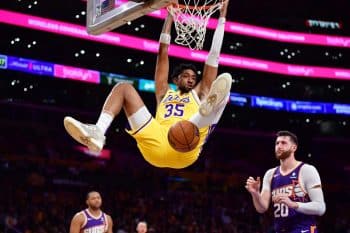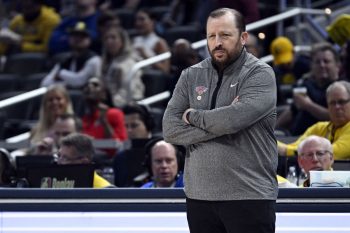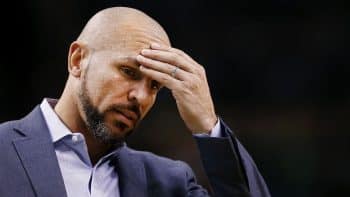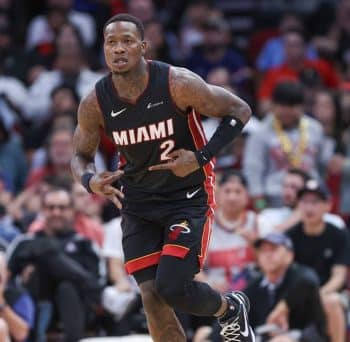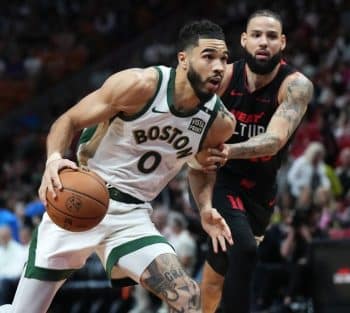NBA
The Rule The NBA Needs To Adopt From College Basketball

It is April 2, and the race for the postseason is heating up. Teams are gearing up for the stretch run. The standings are far from set with plenty of shuffling going on in both conferences.
However, we’re going to switch gears and go a little outside of the box today. Monday night in San Antonio, the NCAA men’s basketball champion will be crowned as the third-seeded Michigan Wolverines take on the first-seed Villanova Wildcats.
There’s sure to be plenty of entertainment value with this game. Two outstanding head coaches, John Beilein and Jay Wright, will go head-to-head. We’ll see projected first-round NBA prospects Moritz Wagner and Mikal Bridges try to boost their draft stocks in the big moment.
But even that’s not the point of this discussion. Let’s play a little hypothetical game here—say the championship tonight is a close one.
There are about two minutes left and Michigan trails by six points and the Wildcats are in the bonus. There’s a borderline terrible foul call down the stretch—barely any body contact, a clean rip, etc.—that sends Bridges to the free throw line. He puts the first shot up and misses back rim, so the Wolverines pull down the rebound and Duncan Robinson knocks down a three in transition right away. It’s a five-point swing and a one-possession game within seconds.
Now, apply the transitive property to the next level with a similar same scenario. The Denver Nuggets are making a hard push for a playoff spot in the West and are deadlocked with the Indiana Pacers at home. Gary Harris gets isolated with Victor Oladipo at the left elbow. He drives to the basket and Harris is called for a ticky-tack foul before motioning towards a shot. Yet since they are in the bonus, Oladipo is awarded two free throws. He misfires short on the front end but makes the second, so the Pacers take the lead in a pivotal moment. Should Harris be punished for playing solid defense?
If you’re a fan of basketball, this is obviously a difference between bonuses in the collegiate and professional versions of the sport, and in the grander scheme of things, a huge one. My question is—Why doesn’t the NBA adopt the one-and-one rule for teams in the bonus?
Fans and players alike are growing tired of officials misjudging fouls in the key moments of games, so what’s the harm in taking away from some of those by making things a bit more difficult at the charity stripe? Free throw shooting in the pros is a heck of a lot better than in college, but there are still only three teams in the league shooting above 80 percent from the line. Everybody isn’t perfect.
Set the rules in a similar way. It takes five fouls to get into the NBA’s bonus and seven in college. After the fifth hack, enforce it as you would there. Have the opponent attempt the free throw. If it’s a miss, it’s a free-for-all for that rebound. If it’s a make, then that player gets another look at it.
There are drawbacks, of course. For one, there’s an old saying—“If it ain’t broke, don’t fix it.” Messing with the way games are decided could bring forth the naysayers, and that’s completely understandable.
There’s also the factor of a potential increase in injuries, as there would be more instances of guys going at it in the paint to get the ball. Teams could also take advantage and just go with the Hack-A-player solution and target the worst free throw shooter, but that’s where the terms of the rule can be discussed.
Overall, it’s a simple tweak that wouldn’t really be that big of a change over the course of a game, but it could certainly make things interesting down the stretch in tight contests. That in itself leads to more uncertainty even with larger gaps. The pros outweigh the cons, and it takes the entertainment value up a notch in this writer’s opinion.
Everybody’s been so focused on discussing one-and-done, but what we should be talking about is one-and-one.
Make it happen, Adam Silver.
